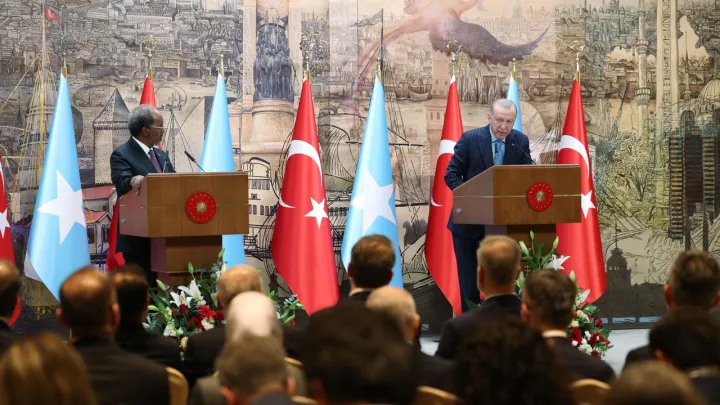Italian authorities extradited a senior member of the terrorist group PKK to Germany, where he was subsequently arrested, authorities have confirmed.
Selahattin K., a ringleader of the PKK's regional divisions in Germany, was detained at Frankfurt Airport on Friday, according to a statement by the Federal Prosecutor's Office.
The suspect, a key figure in the terrorist organisation, was responsible for PKK activities in various German cities during 2014-2015, according to prosecutors. His role involved overseeing the group's propaganda, recruitment, and fundraising activities in major cities such as Frankfurt, Dortmund, Cologne, Dusseldorf, and Essen.
“The accused gave instructions to the ‘area managers,’ rank and file, and activists under his command, and monitored their (progress) implementation. He was involved in the organisation and implementation of propaganda events and meetings,” the prosecutors noted.
“Selahattin K. himself was required to report to the so-called European leadership of the terrorist organisation and had to follow their instructions,” they added.
The German prosecutors had earlier issued a European arrest warrant for Selahattin K. as part of their anti-terrorism investigation. He was arrested by Italian authorities in June, which eventually led to his extradition.
Stronger action against PKK
The PKK, classified as an "ethno-nationalist" terrorist organisation by the EU's law enforcement agency Europol, has been banned in Germany since 1993.
However, it remains active in the country with nearly 15,000 followers, according to the German domestic intelligence agency, BfV.
The terrorist group raised at least €16 million ($17.6 million) in Germany last year in various fundraising campaigns, according to German estimates.
Türkiye has long urged its NATO ally Germany to take stronger action against the PKK, stressing that the terrorist group uses the country as a launchpad for recruitment, propaganda, and fundraising activities.
In its more than 35-year terror campaign against Türkiye, the PKK has been responsible for the deaths of some 40,000 people.
























